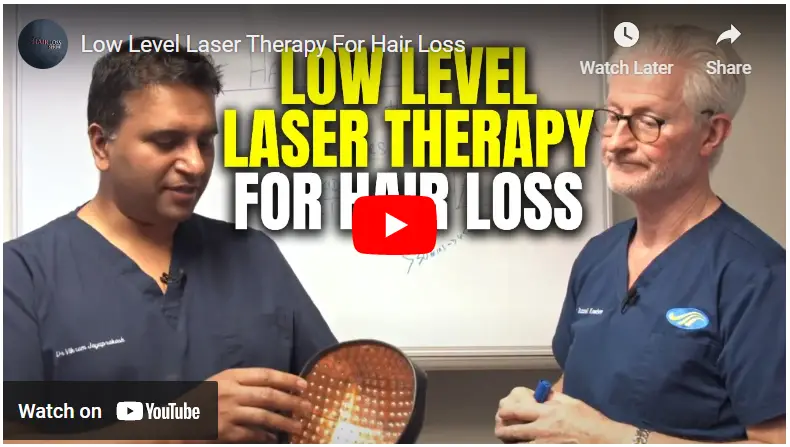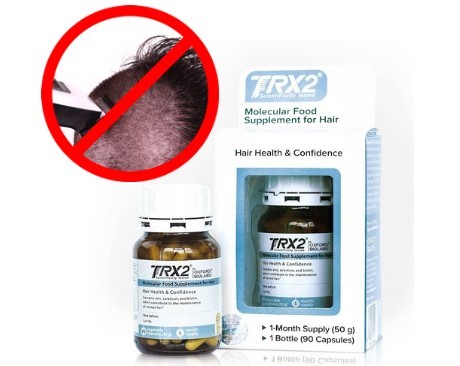Discover the essential role of vitamins for thyroid hair loss. Our comprehensive guide explores the best vitamins and supplements to support hair health and combat hair loss caused by thyroid conditions. Learn how to naturally manage thyroid hair loss and promote hair regrowth.
Hair loss can be a distressing symptom of various health conditions, but when it’s related to thyroid issues, it takes on a whole new level of complexity. If you’re experiencing hair loss due to thyroid problems, you’re not alone. Many people worldwide are in the same boat, searching for effective solutions to this challenging issue.
In this comprehensive guide, we’ll delve into the topic of vitamins for thyroid hair loss, exploring the role of various vitamins and supplements in managing this condition. We’ll also discuss natural remedies and lifestyle changes that can help improve your hair health.
But before we dive into the solutions, it’s crucial to understand the problem. What exactly is thyroid hair loss? How does it happen, and why? And most importantly, how can it be managed or even reversed?
In the following sections, we’ll answer all these questions and more. We’ll provide you with the knowledge and tools you need to take control of your hair health and regain your confidence. So, let’s get started on this journey to better hair health.
Also, if you’re looking for a reliable source of vitamins that can help improve your hair health, don’t miss our review of It Really Works Vitamins. This article provides an in-depth look at one of the most popular hair health supplements on the market, detailing its ingredients, benefits, and how it can help you combat hair loss.
Key Takeaways
- Thyroid hair loss is a common symptom of thyroid disorders, but it can be managed with the right approach.
- Vitamins and minerals like biotin, zinc, selenium, and others can support hair health and promote hair growth.
- A healthy diet, regular exercise, stress management, and other natural methods can complement your nutritional approach to managing hair loss.
- Always consult with a healthcare provider before starting any new supplement regimen or health routine.
- Managing thyroid hair loss requires a comprehensive approach, but with patience and consistency, it’s possible to improve hair health and effectively manage hair loss.
Stay tuned as we delve deeper into the topic of vitamins for thyroid hair loss in the upcoming sections. You’re about to discover a wealth of information that could be the key to restoring your hair health and confidence.
Understanding Thyroid Hair Loss
Thyroid hair loss is a common symptom of both hypothyroidism (underactive thyroid) and hyperthyroidism (overactive thyroid). The thyroid gland, located in the neck, produces hormones that regulate many bodily functions, including hair growth. When these hormones are out of balance, it can lead to a range of symptoms, including hair loss.
What is Thyroid Hair Loss?
Thyroid hair loss occurs when your body’s thyroid hormone levels are imbalanced. This imbalance can disrupt your hair growth cycle, leading to hair loss. It’s important to note that hair loss can occur not only on the scalp but also on other parts of the body, such as the eyebrows.
Causes of Thyroid Hair Loss
Thyroid hair loss can be caused by both hypothyroidism and hyperthyroidism. Hypothyroidism is a condition where the thyroid gland doesn’t produce enough thyroid hormones. On the other hand, hyperthyroidism is a condition where the thyroid gland produces too much thyroid hormone. Both conditions can disrupt the normal hair growth cycle, leading to hair loss.
Other factors that can contribute to thyroid hair loss include:
- Autoimmune diseases, such as Hashimoto’s disease and Graves’ disease
- Certain medications used to treat thyroid conditions
- Nutritional deficiencies, particularly in essential vitamins and minerals for hair health
Symptoms and Diagnosis of Thyroid Hair Loss
Thyroid hair loss typically presents as a thinning of the hair on the scalp. In some cases, it can also affect the eyebrows and other body hair. Other symptoms of thyroid disorders can include fatigue, weight changes, mood swings, and changes in heart rate.
Diagnosing thyroid hair loss involves a thorough medical examination, including blood tests to measure your levels of thyroid hormones. Your doctor may also examine your hair and scalp to assess the pattern and extent of your hair loss.
If you’re experiencing hair loss and suspect it may be related to your thyroid, it’s important to seek medical advice. Early diagnosis and treatment can help manage your symptoms and prevent further hair loss.
For more information on hair loss and thyroid disorders, check out this informative article from the British Thyroid Foundation.
In the next section, we’ll explore the role of vitamins and minerals in hair health, and how they can help manage thyroid hair loss. Stay tuned for more insights and practical tips on improving your hair health.
If you’re interested in learning more about the role of vitamins in hair health, don’t miss our review of It Really Works Vitamins. This article provides an in-depth look at one of the most popular hair health supplements on the market, detailing its ingredients, benefits, and how it can help you combat hair loss.
Role of Vitamins and Minerals in Hair Health
When it comes to maintaining healthy hair, the role of vitamins and minerals cannot be overstated. These essential nutrients support various bodily functions, including the growth and maintenance of healthy hair. In this section, we’ll delve into the importance of vitamins for hair health and explore specific vitamins that play a crucial role in maintaining your hair’s health and vitality.
Importance of Vitamins for Hair Health
Vitamins and minerals are essential for maintaining overall health, and your hair is no exception. These nutrients support the growth and strength of your hair, help prevent hair loss, and can even contribute to maintaining your hair’s natural color.
A deficiency in certain vitamins and minerals can lead to hair loss or other hair-related issues. Therefore, ensuring that you get an adequate intake of these nutrients can be a key factor in preventing and managing hair loss, including thyroid hair loss.
Specific Vitamins and Their Role in Hair Health
Several vitamins and minerals play a crucial role in hair health. Here are some of the most important ones:
- Vitamin A: This vitamin is essential for cell growth, including hair cells. It also helps the skin glands produce sebum, which moisturizes the scalp and keeps hair healthy.
- B-Vitamins: This group of vitamins, particularly Biotin, Folate, B5, and B12, are known for their role in hair health. Biotin deficiency can lead to hair loss, which is why it’s often included in hair health supplements.
- Vitamin C: This vitamin is a powerful antioxidant that helps protect against oxidative stress, which can cause hair aging and hair loss. It’s also important for collagen production, which is essential for healthy hair growth, and it helps the body absorb iron, which is important for hair growth.
- Vitamin E: This vitamin is an antioxidant that helps improve blood circulation and oxygen supply to the scalp, which can promote hair growth.
- Iron: Iron helps red blood cells carry oxygen to your cells, including hair follicles. A deficiency in iron can lead to hair loss.
- Zinc: Zinc plays a crucial role in hair tissue growth and repair. It also helps keep the oil glands around the follicles working properly. Zinc contributes to the production of thyroid hormones and is important for healthy hair growth. It may be particularly beneficial in situations of hair loss caused by thyroid issues.
- Selenium: This mineral is important for thyroid function and may help reduce hair loss caused by thyroid disorders.
- Kelp: Kelp is a type of seaweed that is rich in iodine, which is important for thyroid function. It may help reduce hair loss caused by thyroid disorders.
- Magnesium: This mineral is important for healthy hair growth and may help reduce hair loss caused by thyroid disorders.
- Probiotics: Probiotics can help improve gut health, which is important for nutrient absorption and overall health. They may also help reduce inflammation, which can contribute to hair loss.
For a more detailed look at the role of vitamins and minerals in hair health, check out our article on Best DHT Blocker Vitamins. It provides a comprehensive overview of the various vitamins and minerals that can help block DHT, a hormone known to cause hair loss.
In the next section, we’ll delve deeper into the topic of vitamins for thyroid hair loss. We’ll explore which vitamins are particularly beneficial for managing this condition and how you can incorporate them into your diet. Stay tuned for more valuable insights and practical tips on managing thyroid hair loss.
If you’re interested in learning more about the role of vitamins in hair health, don’t miss our review of It Really Works Vitamins. This article provides an in-depth look at one of the most popular hair health supplements on the market, detailing its ingredients, benefits, and how it can help you combat hair loss.
What Are The Best Vitamins for Thyroid Hair Loss?
When it comes to managing thyroid hair loss, certain vitamins and minerals can play a significant role. These nutrients can help balance thyroid hormone levels, support hair growth, and reduce hair loss. In this section, we’ll delve into the specific vitamins and minerals that can help manage thyroid hair loss.
Here is a table summarizing the best vitamins for thyroid hair loss:
| Vitamin/Mineral | Benefits | Food Sources |
|---|---|---|
| Biotin | Supports hair health and promotes hair growth | Eggs, almonds, sweet potatoes |
| Zinc | Contributes to the production of thyroid hormones and supports hair health | Oysters, beef, pumpkin seeds |
| Selenium | Important for thyroid function and may help reduce hair loss | Brazil nuts, seafood, whole grains |
| Vitamin C | Important for collagen production and helps the body absorb iron | Citrus fruits, strawberries, bell peppers |
| Vitamin E | Improves blood circulation and oxygen supply to the scalp | Spinach, almonds, sunflower seeds |
Vitamins and Minerals for Thyroid Hair Loss
Several vitamins and minerals can help manage thyroid hair loss. Here are some of the most beneficial ones:
- Biotin: Often referred to as the “hair growth vitamin,” Biotin is one of the most recommended supplements for hair loss related to thyroid conditions [1]. It supports the production of keratin, a protein that makes up your hair, skin, and nails.
- Zinc: Zinc is essential for the growth and repair of hair tissue. It also helps keep the oil glands around the hair follicles working properly [2]. A deficiency in zinc can lead to hair loss.
- Selenium: Selenium is crucial for the production of thyroid hormones. It also protects the thyroid gland from oxidative damage. Some studies suggest that selenium supplements can help improve hair health in people with thyroid disorders [3].
- Iron: Iron is vital for the growth and repair of cells, including hair cells. An iron deficiency can disrupt the hair growth cycle and lead to hair loss [4].
- Vitamin D: Low levels of vitamin D have been linked to both hair loss and thyroid disorders. Ensuring you get enough vitamin D can help improve hair growth and support thyroid health.
- Vitamin E: Vitamin E is a powerful antioxidant that can help protect your hair follicles from damage. It also improves blood circulation, which allows more nutrients to reach your hair follicles.
- Vitamin C: Vitamin C is another powerful antioxidant that can help protect your hair follicles from damage. It also helps your body absorb iron, a mineral important for hair growth.
- Omega-3 Fatty Acids: These essential fats can help reduce inflammation, a common issue in people with thyroid disorders. They also support hair health and may help reduce hair loss [6].
Remember, it’s always best to get your vitamins and minerals from a balanced diet. However, if you’re unable to get enough from your diet alone, supplements can be a helpful addition. Always consult with a healthcare provider before starting any new supplement regimen.
Other Supplements for Thyroid Hair Loss
In addition to vitamins and minerals, there are other supplements that can help manage thyroid hair loss. These supplements can provide additional support for hair growth and overall hair health. In this section, we’ll explore some of these supplements and how they can benefit individuals dealing with thyroid hair loss.
Probiotics
Probiotics are beneficial bacteria that support gut health. The health of your gut can impact the health of your hair, as it affects the absorption of nutrients and the regulation of hormones, including thyroid hormones. Some studies suggest that probiotics can help improve hair health and reduce hair loss.
Collagen
Collagen is a protein that makes up a significant portion of your hair, skin, and nails. Supplementing with collagen can help improve the strength and elasticity of your hair, potentially reducing hair loss.
Saw Palmetto
Saw palmetto is a plant that is often used in supplements for hair loss. It’s believed to block an enzyme that converts testosterone into DHT, a hormone that can cause hair follicles to shrink and lead to hair loss.
For more information on Saw palmetto supplements for hair health, check out our article on Saw Palmetto for Hair Loss in Females. It provides a comprehensive overview of various supplements that can help block DHT, a hormone known to cause hair loss.
Pumpkin Seed Oil
Pumpkin seed oil is rich in antioxidants and fatty acids, and it’s been shown in some studies to increase hair count in individuals dealing with hair loss.
Evening Primrose Oil
Evening primrose oil is rich in omega-6 fatty acids, which can help improve hair health. Some research suggests that it can help reduce hair loss caused by hormonal imbalances, including those related to thyroid disorders.
Remember, while these supplements can support hair health, they should not replace a balanced diet or any prescribed medications for thyroid disorders. Always consult with a healthcare provider before starting any new supplement regimen.
In the next section, we’ll delve into dietary sources of these vitamins, minerals, and supplements. We’ll provide practical tips on how to incorporate these nutrients into your diet to support hair health and manage thyroid hair loss. Stay tuned for more valuable insights and practical tips on managing thyroid hair loss.
Natural Ways to Manage Thyroid Hair Loss
While vitamins, minerals, and supplements can provide significant support for managing thyroid hair loss, there are also natural methods that can help. These methods can complement your nutritional approach and provide a holistic strategy for managing thyroid hair loss. In this section, we’ll explore some of these natural methods.
Healthy Diet
A healthy diet is the foundation of overall health, including hair health. Consuming a balanced diet rich in fruits, vegetables, lean proteins, and healthy fats can provide your body with the nutrients it needs for hair growth. Foods rich in iron, zinc, B vitamins, vitamin D, and omega-3 fatty acids can be particularly beneficial for hair health.
Regular Exercise
Regular exercise can help improve circulation, which can benefit hair growth. It can also help manage stress, which can contribute to hair loss.
Stress Management
Stress can impact your body in various ways, including causing hair loss. Techniques such as meditation, yoga, deep breathing, and other relaxation practices can help manage stress levels and may help reduce hair loss.
Scalp Massage
Massaging your scalp can help improve circulation and stimulate hair follicles, promoting hair growth. You can do this yourself or seek out a professional for a scalp massage.
Avoid Heat and Chemical Styling
Heat and chemical styling can damage your hair and lead to hair loss. Try to limit the use of heat styling tools and avoid chemical treatments as much as possible.
Stay Hydrated
Water is essential for overall health, including hair health. Staying hydrated can help keep your hair strong and healthy.
Remember, while these natural methods can support hair health, they should not replace a balanced diet or any prescribed medications for thyroid disorders. Always consult with a healthcare provider before starting any new health regimen.
For more information on natural ways to manage hair loss, check out our article on Minoxidil Alternatives. It provides a comprehensive overview of various natural methods that can help manage hair loss.
In the next section, we’ll delve into frequently asked questions about vitamins for thyroid hair loss. We’ll provide answers to common queries and concerns about this topic. Stay tuned for more valuable insights and practical tips on managing thyroid hair loss.
Frequently Asked Questions
In this section, we’ll address some of the most frequently asked questions about vitamins for thyroid hair loss. These questions and answers can provide additional insights and help clarify common concerns related to this topic.
1. What does thyroid hair loss look like?
Thyroid hair loss typically presents as a thinning of the entire scalp rather than patchy hair loss. It can affect the entire scalp rather than just certain areas. If you’re experiencing hair loss and suspect it may be related to your thyroid, it’s important to consult with a healthcare provider for a proper diagnosis.
2. How long does it take to see results from taking supplements for thyroid hair loss?
The time it takes to see results can vary depending on the individual and the severity of the hair loss. Generally, it can take several months of consistent use to see noticeable improvements. It’s important to remember that hair growth is a slow process and patience is key.
3. Are there any potential side effects of taking supplements for thyroid hair loss?
While most people can take these supplements without any issues, potential side effects can include digestive upset, skin rashes, or allergic reactions. It’s always best to consult with a healthcare provider before starting any new supplement regimen.
4. How can I prevent hair loss while taking levothyroxine?
Levothyroxine is a common medication used to treat hypothyroidism. Some people may experience hair loss when first starting this medication, but this is usually temporary. Ensuring you’re getting enough vitamins and minerals for hair health can help. If hair loss continues, it’s important to consult with your healthcare provider.
5. What are the dietary sources of the recommended vitamins for thyroid hair loss?
Many of the vitamins recommended for thyroid hair loss can be found in a balanced diet. For example, biotin can be found in eggs, almonds, and sweet potatoes; zinc in oysters, beef, and pumpkin seeds; and selenium in brazil nuts, seafood, and whole grains.
For more detailed answers to these questions and more, check out our article on Cause of Balding. It provides a comprehensive overview of the various causes of hair loss, including thyroid disorders, and offers practical tips and advice on managing hair loss.
In the next section, we’ll wrap up our discussion on vitamins for thyroid hair loss. We’ll provide a summary of the key takeaways from this article and offer some final thoughts and advice on managing thyroid hair loss. Stay tuned for more valuable insights and practical tips on managing thyroid hair loss.
Conclusion
In this comprehensive guide, we’ve explored the topic of vitamins for thyroid hair loss in depth. We’ve learned that thyroid disorders can lead to hair loss, but there are numerous vitamins, minerals, and supplements that can help manage this condition. From B-complex vitamins like biotin to minerals like zinc and selenium, these nutrients can support hair health and promote hair growth.
We’ve also discussed the importance of a healthy diet, regular exercise, stress management, and other natural methods in managing thyroid hair loss. These methods can complement your nutritional approach and provide a holistic strategy for managing hair loss.
Remember, while these vitamins and supplements can support hair health, they should not replace a balanced diet or any prescribed medications for thyroid disorders. Always consult with a healthcare provider before starting any new health regimen.
In the end, managing thyroid hair loss involves a comprehensive approach that includes proper nutrition, lifestyle modifications, and, if necessary, medical treatment. With patience and consistency, it’s possible to improve hair health and manage thyroid hair loss effectively.
We hope this guide has provided you with valuable insights and practical tips on managing thyroid hair loss. Remember, every individual is unique, and what works for one person may not work for another. It’s important to find a regimen that works best for you and your specific needs.
For more information on managing hair loss, check out our article on Hair Breakage at Crown. It provides a comprehensive overview of the causes of hair breakage and offers practical tips and advice on managing this common hair issue.
If you’re interested in learning more about the role of vitamins in hair health, don’t miss our review of It Really Works Vitamins. This article provides an in-depth look at one of the most popular hair health supplements on the market, detailing its ingredients, benefits, and how it can help you combat hair loss.
Thank you for joining us on this journey through the world of vitamins for thyroid hair loss. We wish you the best of luck on your hair health journey!
- AI Powered Bald Filter Online 2024: See Yourself with No Hair! - January 19, 2024
- Harklinikken Bad Reviews 2024: Analyzing Negative Feedbacks - January 18, 2024
- How to Get the Alex Eubank Hair | Step-By-Step Tutorial 2024 - January 18, 2024







